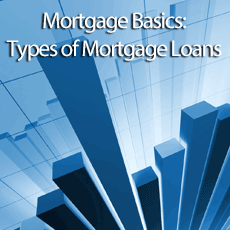 There are several mortgage options open to you when you are buying your home. The different types of mortgage loans available each have their own benefits and disadvantages according to your personal circumstances. Here are four types of regular mortgage options that you can consider when buying property.
There are several mortgage options open to you when you are buying your home. The different types of mortgage loans available each have their own benefits and disadvantages according to your personal circumstances. Here are four types of regular mortgage options that you can consider when buying property.
Fixed Rate Mortgage
With a fixed rate mortgage you are taking a bit of a gamble. If the time is right, and interest rates are generally low, this might be worth the gamble. With this mortgage, you agree to a fixed interest rate to be applied over the entire life of your mortgage whether that is over 15 years or a full 30 years.
If mortgage rates remain fairly stable or increase over the period of your mortgage, then you will generally gain. However, if they drop then you will lose out. One of the man benefits of a fixed rate mortgage is peace of mind. You know exactly what you will be paying each month for the next 30 years.
You will not be subject to a hike in your monthly repayments if the interest rates generally rise. For many people that benefit is well worth the possibility of the rates dropping. They know that they need not spend the next 30 years keeping an eye on the interest rates, hoping they don’t rise.
Adjustable Rate Mortgage Options
With an adjustable rate mortgage you will start off with the lowest rate available to you. The interest you pay over the next 15-30 years will then vary according to an index that is broadly based upon inflation and the price of mortgage derivatives and other bonds offered on the stock exchange.
The Fed can increase interest rates to curb inflation. Mortgage rates also increase with a rising demand for home ownership. Mortgages of the same type are generally bundled together and then sliced into smaller portions known as tranches. These are traded as mortgage derivatives on the stock exchange. Interest rates can rise and fall with changing prices of these securities.
In short, with an adjustable rate mortgage, your interest rate can rise and fall many times during the tenure of your mortgage. Your rate will not change with each slight fluctuation, but will be adjusted periodically in line with general trends. Sometimes you will win and sometimes you will lose. If you have a large mortgage and cannot financially tolerate an increase in your rate, then a fixed rate mortgage might be best for you.
Fixed Then Adjustable Rate Mortgage (Hybrid ARM)
With this type of mortgage, your interest rate is fixed for an initial period such as 2-3 years, and then switched to an adjustable rate. The fixed rate portion is usually set at a low rate of interest to enable you to pay a smaller amount for the first few years.
You then switch to a variable rate once you are earning more money. This is a good option for young people buying their first home, and who expect reasonable salary increases over the next 2-3 years. It makes home purchase more affordable in the important early years. Over 30 years, for example, a 3-year fixed interest period would be referred to as a 3/27 mortgage loan.
Deferred Interest Mortgage
With a deferred interest mortgage, interest payments are deferred for a period of time, and amortized with the rest of the loan. In other words, you pay the deferred interest over the remaining period of the loan – although you will be paying interest on the deferred interest! Even so, many people find that this one of the more attractive mortgage options, enabling them to purchase a larger home than they could otherwise afford. They go back to a regular mortgage when they are earning enough to afford the repayments. This is an option to a hybrid ARM.
Choosing From These Types of Mortgage Loans
When choosing one of these mortgage options you should first analyze your own finances. Determine what you can afford to pay now, and what you might afford in 2-3 years time. If you overestimate your future income, then you could be in trouble. That is why you should always take the advice of a mortgage professional when considering these different types of mortgage loans.


About The Author: Karengustin
More posts by karengustin